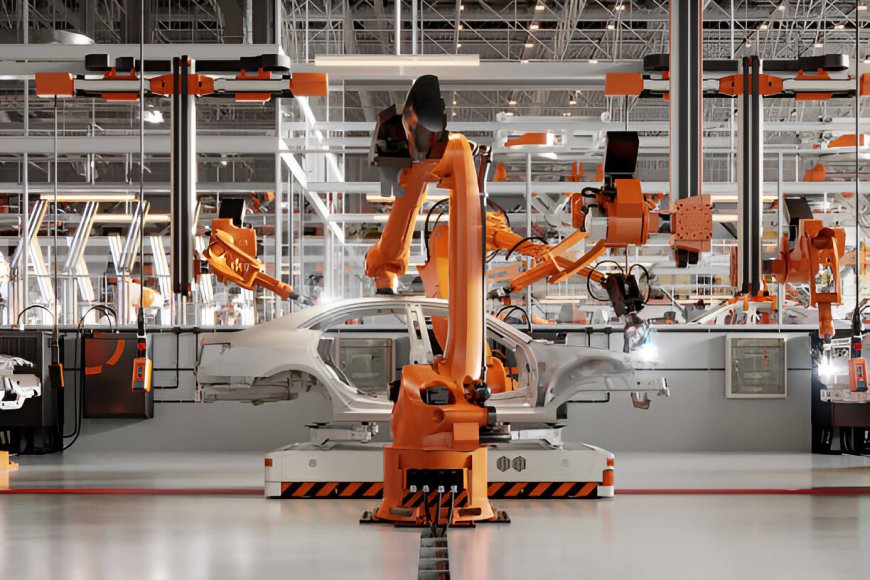How China Revolutionized the Global Car Manufacturing Industry – And What We Should Keep in Mind
China has reshaped the global car manufacturing industry with innovation and scale, impacting design, production, and global markets.

When you think about automotive giants, names like Toyota, Ford, Volkswagen, or BMW likely come to mind. But if you've been paying close attention lately, you've probably noticed another country rapidly shaking things up: China. Over the past decade, China has transformed itself from an automotive underdog to the world's largest car market and an increasingly dominant exporter of affordable, feature-packed vehicles. But how did China manage to revolutionize the global car manufacturing industry so dramatically? And should consumers approach these new entrants with caution?
Let's take a deeper dive into China's extraordinary rise in the automotive world.
China's Automotive Journey: From Assembler to Innovator
Historically, China's automotive industry had humble beginnings. Through much of the 20th century, Chinese manufacturers largely produced foreign cars under joint ventures and license agreements. Brands like FAW, SAIC, and Dongfeng assembled models designed overseas, primarily for domestic consumption.
But this began to change around the turn of the millennium. China's booming economy and growing middle class sparked an unprecedented demand for personal transportation. To meet the demand quickly, local manufacturers aggressively ramped up production capacities, importing modern machinery and technology from global leaders. Yet it wasn’t merely production that China sought—it was mastery.
Through ambitious policies and substantial state support, Chinese automakers gradually acquired technical know-how. Many global automotive giants were required by Chinese law to share technology and expertise with their local partners, inadvertently facilitating rapid skill transfer. While these conditions created controversy abroad, domestically they allowed China's carmakers to swiftly advance from basic assemblers to genuine innovators. You can view website to know more!
Leveraging Cost Advantages and Economies of Scale
One of China's most significant advantages lies in its enormous manufacturing infrastructure. Chinese factories benefit from substantial economies of scale, abundant raw materials, and lower labor costs compared to European, American, and Japanese competitors. These factors enable Chinese automakers to flood both domestic and global markets with competitively priced vehicles.
Brands such as Geely, BYD, Nio, and Great Wall Motors have now begun exporting aggressively, offering consumers worldwide affordable vehicles with an impressive array of features usually reserved for premium models. This growth is further supported by a robust parts inventory, ensuring streamlined production and timely delivery in global markets. Electric vehicles (EVs) have become a particular strength for Chinese manufacturers, thanks to significant government incentives promoting electric mobility, advanced battery technology, and rapid scaling of EV production capacity.
Indeed, China's early and aggressive investment in EVs now places it at the forefront of the global transition towards electrified transportation. Today, China produces around half of the world's EV batteries and is the largest global market for electric vehicles, positioning Chinese manufacturers strongly against traditional giants.
Innovations, Copycats, and Quality Concerns
However, China's rapid automotive rise has not been without controversy. While Chinese manufacturers are increasingly recognized for genuine innovation, particularly in EV technology, safety features, and infotainment systems, they have also faced consistent criticism regarding intellectual property rights and originality.
For years, global automakers accused Chinese brands of blatantly copying their designs and technology. Cases like Landwind’s copycat of the Range Rover Evoque or Zotye’s infamous Porsche Macan lookalike highlighted China's struggles to establish a credible, original identity in the industry. Such accusations severely impacted brand perception and trustworthiness in global markets.
Moreover, quality concerns also remain a significant hurdle. Despite impressive strides in recent years, including improved safety ratings and build quality, the Chinese automotive sector's past reputation for subpar reliability, lax quality control, and inferior materials persists in consumers' minds. Recalls and reported defects occasionally make headlines, underscoring the necessity for prospective buyers to conduct thorough research.
Precautions for Consumers and the Future Outlook
Today, consumers considering a Chinese-made vehicle benefit from significantly improved standards. Brands like BYD and Nio now regularly receive strong safety scores from international crash test organizations. The build quality and reliability of recent Chinese vehicles are notably higher than a decade ago, with some brands confidently offering warranties and after-sales support comparable to traditional automakers.
Still, it's crucial for buyers to approach this rapidly evolving market carefully. Rigorous research, attention to independent reviews, crash test ratings, and warranty conditions remain essential steps before making a purchase. Particularly with lesser-known Chinese brands just entering the market, due diligence is key to ensuring a safe, satisfying ownership experience.
While exploring the latest Chinese automotive innovations, you might also enjoy experiencing the same excitement and thrill in other areas of life. If you find joy in calculated risks and rewarding experiences, W88 offers an engaging platform for casino gaming and sports betting, bringing that adrenaline-filled excitement right to your fingertips. Whether you're into strategic games or sports predictions, W88 provides a secure, seamless environment to enhance your leisure time subtly and responsibly.
A Transformative Force with Considerations
China's revolution in car manufacturing is undeniably impressive. From rapid innovation in electric vehicles and global market penetration to consistently competitive pricing, Chinese manufacturers have dramatically reshaped the automotive landscape. Yet, the industry's past issues with originality and quality should encourage consumers to stay informed and vigilant.
As China's automakers continue to evolve, balance between excitement and caution remains key. The rise of Chinese vehicles offers genuine benefits for global consumers, from affordability and features to accelerating EV adoption. However, maintaining awareness about the brands’ reputation and conducting thorough research ensures that your automotive choice is not only financially smart but also reliably safe.







